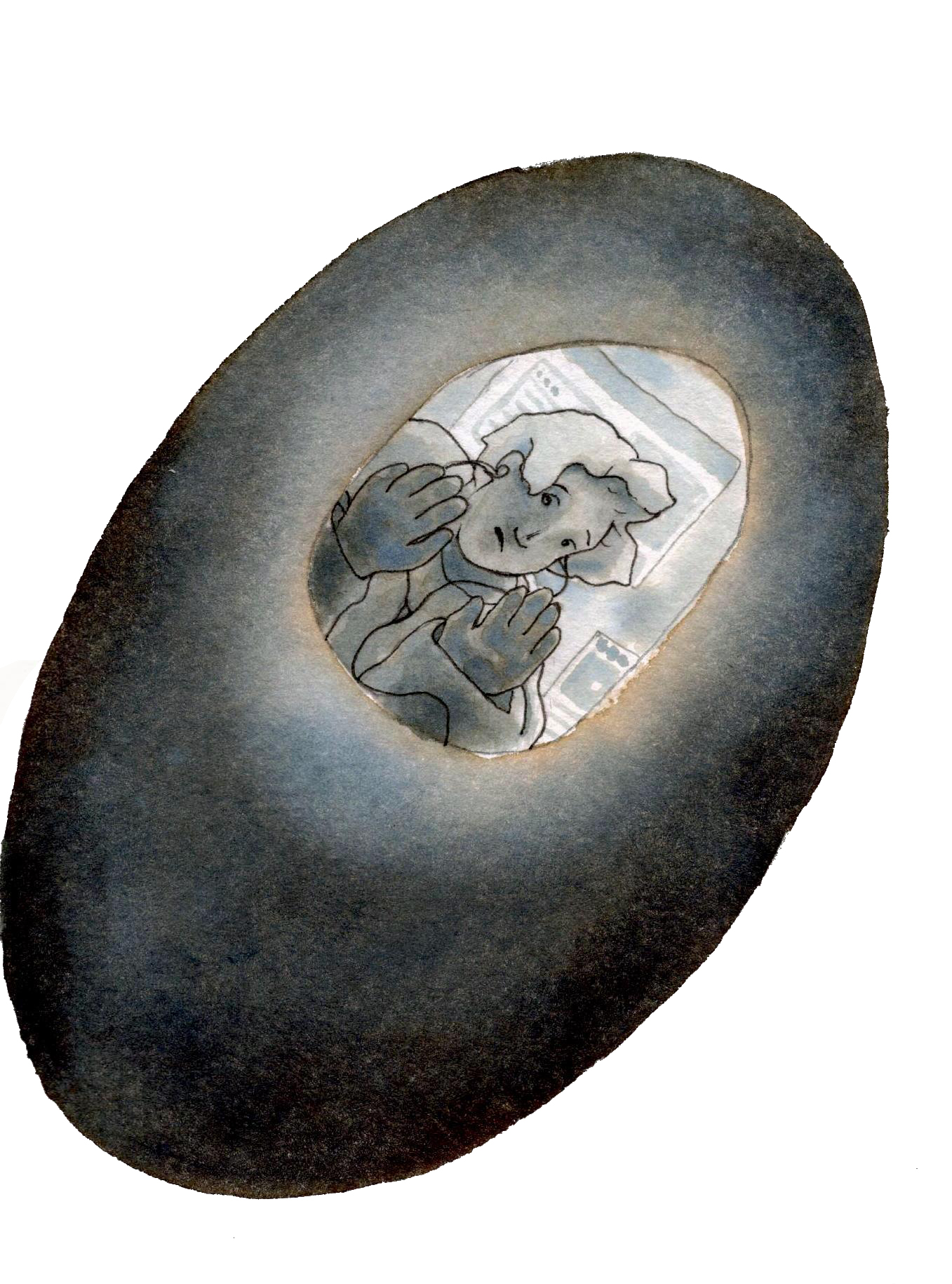Pod life is not normal, resist the new normal
May 1, 2020
 This
piece represents the opinion of the author
.
This
piece represents the opinion of the author
.
The dictionary defines “pod” as a “detachable or self-contained unit on an aircraft, spacecraft, vehicle, or vessel, having a particular function.” My pod is my bedroom, its function: isolation. It is said that isolation is the new heroism these days. This may be true, but it cannot become the new normal.
In the pod, each member is a producer of digital labor—either through their data generation or in their work (work excluding blue-collar work and essential workers, which the pod relies on)—or a consumer of digital media. Digital interfaces (laptops, smartphones, tablets, social media, news media, entertainment media, workplace software) act as intermediaries through which people interact for various purposes.
While the internet insists that it improves social systems, the modern era trends towards anti-sociality or mediated sociality as tech companies come to service every aspect of human existence. This becomes especially apparent during quarantine. The pod is now your unintended universe—a universe once occupied with people now filled with new bodies that supply bare life: Amazon, Zoom, Slack, Twitter, Linkedin …
Even more frightening is how easily we slip into pod life and how new technologies enable productivity through that isolation. Recent years have alluded to the virtual workplace or university but never quite materialized it until now. Forced isolation and the pod have accelerated digital dependencies while failing to fully replace the fulfillment of human presence. The lack of human presence is part of what makes this hard on all of us; people need other people, to be around other people. Sociality is our humanity.
Virtually mediated sociality is not a society; it is a kind of post-society. It is human interaction constantly framed, shaped and influenced by its digital intermediaries which profit from its every turn. Every click, every pause, every data point generated is recalibrated and resurfaced as a new product. Our continual use of it changes our psychology; it creates dependency, then fails to fulfill us. Technology fails to fulfill us. The pod is insufficient.
There’s been a lot of talk about “new normals” or “the next normal” in the news lately. Many are convinced that quarantine will shape the conditions and demands for a new kind of social organizing. People have really come to understand which board meeting could have been a conference call. A friend of mine recently said to me, jokingly, that the only real institutions that will survive the pandemic are Onlyfans, the Central Bank and Amazon. He’s wrong, but he has a point: the pandemic is accelerating the kind of disruption that entrenches pod life.
Many restaurants will not survive, the movie theater business will finally collapse, online education will become more feasible as more investors back better technologies, 5G technologies will eliminate the video chat buffer—this all points to a new normal that looks more and more like a pod. In what physical spaces will our bodies feel comfortable cohabitating? Are we destined to mingle in chat rooms? The irony is that the kind of radical sociality and cohabitation that is required to change course is one that may kill millions of people. What options do we have?
Lately, when I am experiencing digital eye strain (a term I learned from a terrifying YouTube advertisement I’ve been seeing lately: “Are you experiencing digital eye strain? Buy our blue light protective glasses!”) I’ve been going to the riverfront park. I drive there and either sit in my car and look out at the sunset or walk out to sit by the water. I’m still in quarantine in these moments. Many more people occupy the riverfront than I remembered. Everyone has their masks on—holding hands, pushing strollers, slowly stalking the lots in their pods-on-wheels—each co-quarantining in their little pod-units. From six feet away, some exchange greetings, others exchange skeptical nods; all are resisting in their own way. This to me feels like a kind of bittersweet hope.


Comments
Before submitting a comment, please review our comment policy. Some key points from the policy: